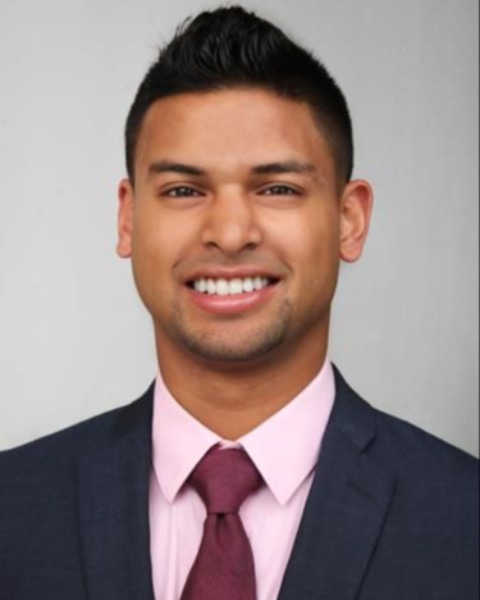Medical Education: Resident
Category: Abstract Submission
Medical Education 7 - Medical Education: Potpourri
155 - The Impact of Gap Years During Training on a Trainee’s Self-Perceived Sense of Wellness
Saturday, April 23, 2022
3:30 PM - 6:00 PM US MT
Poster Number: 155
Masrur A. Khan, Children's Hospital Los Angeles, Los Angeles, CA, United States; Eyal Ben-Isaac, USC Keck School of Medicine, Los Angeles, CA, United States

Masrur A. Khan, MD
Resident Physician
Children's Hospital Los Angeles
Los Angeles, California, United States
Presenting Author(s)
Background: The culture of medicine had always been that physicians-in-training progress through their career path continuously. However, in recent years there has been a growing pattern of students and early-career physicians taking breaks at some point during their training and for a variety of reasons.
Objective: The purpose of this study is to identify if residents who take time off during their education have an overall better sense of wellness compared to their colleagues who continue through their training uninterrupted.
Design/Methods: A survey instrument was generated and, in phase one, distributed to pediatric residents and fellows at Children’s Hospital Los Angeles (CHLA). The survey has since also begun its second phase of distribution, which is on the national level via the Association of Pediatric Program Directors. All respondents were asked demographic questions, questions about wellness and burnout, and questions about their gap years or unanticipated time off (if applicable). Analysis and subgroup analysis were used to determine if there was a correlation between wellness/burnout and breaks in continuous training.
Results: Phase one results: of 218 CHLA residents and fellows, there were 78 total responses (36%). Of all respondents, 41 (52.6%) were residents, 37 (47.4%) were fellows, and a total of 41 (52.6%) took gap years. Of people who took gap years, only 2 (4.9%) were very unlikely to recommend a gap year to others, while 8 (19.5%) were likely and 31 (75.6%) were very likely to recommend a gap year to others. Additionally, those who took time off in their training reported lower levels of stress compared to those who did not take any time off (Likelihood ratio = 12.1, p = 0.02), and they also felt that their time off contributed greatly to their sense of wellness (Likelihood Ratio = 108, p < 0.001).Conclusion(s): Early results from the survey suggest that residents who take a break in their continuous training at some point and for any reason have a greater overall sense of wellness and decreased level of burnout compared to their colleagues who continue through their training without any interruption. These results may be promising and may provide valuable insight into how we can best guide future physicians moving forward to promote wellness and prevent burnout. With national distribution (phase two), there will be increased statistical power to assess if these results are applicable and generalizable on a national level to pediatric trainees across the United Status.
CV.Masrur.Khan.pdf
Objective: The purpose of this study is to identify if residents who take time off during their education have an overall better sense of wellness compared to their colleagues who continue through their training uninterrupted.
Design/Methods: A survey instrument was generated and, in phase one, distributed to pediatric residents and fellows at Children’s Hospital Los Angeles (CHLA). The survey has since also begun its second phase of distribution, which is on the national level via the Association of Pediatric Program Directors. All respondents were asked demographic questions, questions about wellness and burnout, and questions about their gap years or unanticipated time off (if applicable). Analysis and subgroup analysis were used to determine if there was a correlation between wellness/burnout and breaks in continuous training.
Results: Phase one results: of 218 CHLA residents and fellows, there were 78 total responses (36%). Of all respondents, 41 (52.6%) were residents, 37 (47.4%) were fellows, and a total of 41 (52.6%) took gap years. Of people who took gap years, only 2 (4.9%) were very unlikely to recommend a gap year to others, while 8 (19.5%) were likely and 31 (75.6%) were very likely to recommend a gap year to others. Additionally, those who took time off in their training reported lower levels of stress compared to those who did not take any time off (Likelihood ratio = 12.1, p = 0.02), and they also felt that their time off contributed greatly to their sense of wellness (Likelihood Ratio = 108, p < 0.001).Conclusion(s): Early results from the survey suggest that residents who take a break in their continuous training at some point and for any reason have a greater overall sense of wellness and decreased level of burnout compared to their colleagues who continue through their training without any interruption. These results may be promising and may provide valuable insight into how we can best guide future physicians moving forward to promote wellness and prevent burnout. With national distribution (phase two), there will be increased statistical power to assess if these results are applicable and generalizable on a national level to pediatric trainees across the United Status.
CV.Masrur.Khan.pdf
